The three partner countries constituting the AUKUS trilateral security partnership on October 25 have concluded this years Autonomous Warrior (AW) exercise. The event lasted one month, testing thirty capabilities provided by Australia, the United Kingdom and the United States. Autonomous Warrior dates back to 2018, held annually between the three nations with further partners for selected events. Notably for the 2024-iteration Japan participated as an observer. The step is in line with Japan’s interest in joining the Pillar 2-element of AUKUS. Pillar 2 focuses on advanced capabilities and technology sharing among partners. This element of AUKUS complements Pillar 1, which aims to provide a nuclear powered submarine-capability to the Australian Navy (RAN).
Large range of drones included some unidentified systems

Swift Sea Stalker and MAPC GARC at AW 2024, Image via Australian Defence.
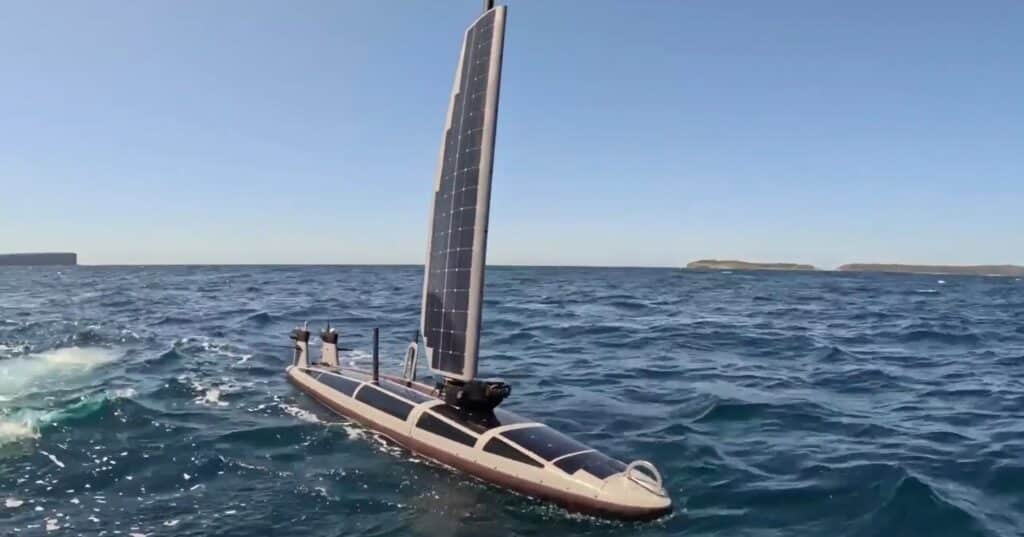
Ocean Aero Triton dual USV/UUV at AW 2024. Image via Australian Defence.
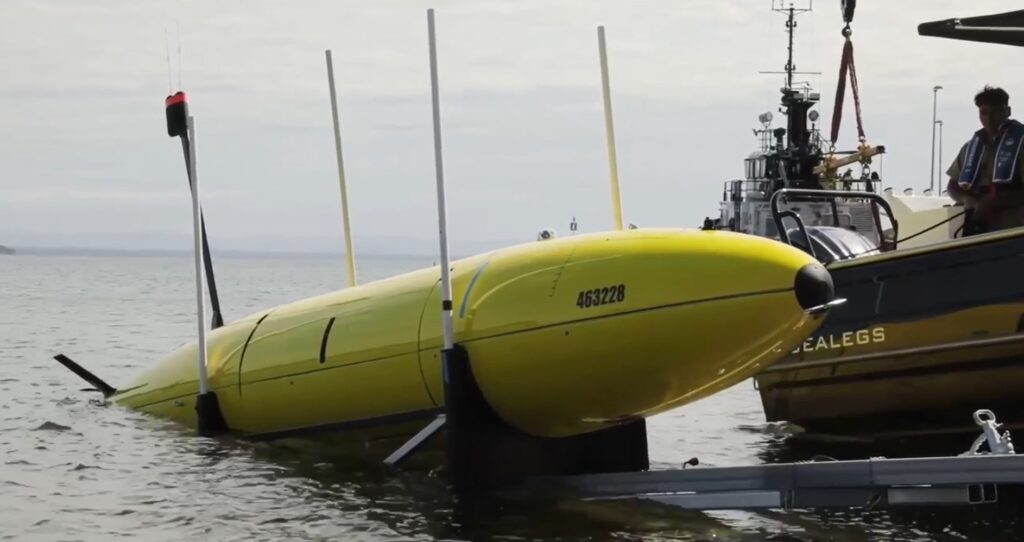
Unidentified large UUV at AW 2024, reminiscent of Kongsberg Hugin series. Image via Australian Defence.
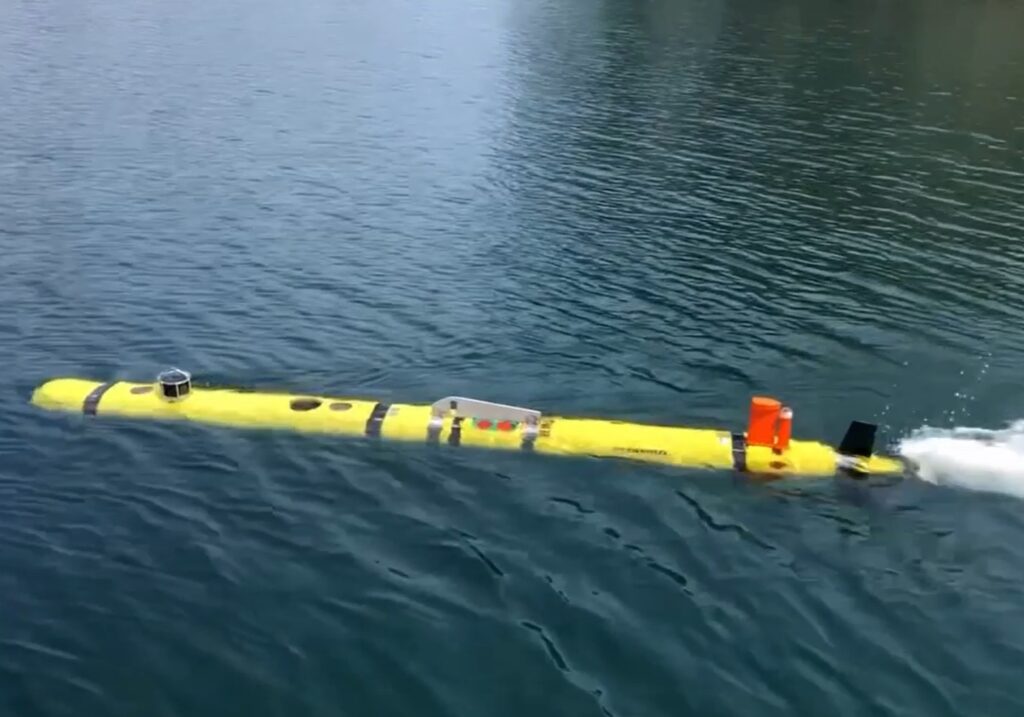
Remus 600 series UUV at AW 2024. Image via Australian Defence.
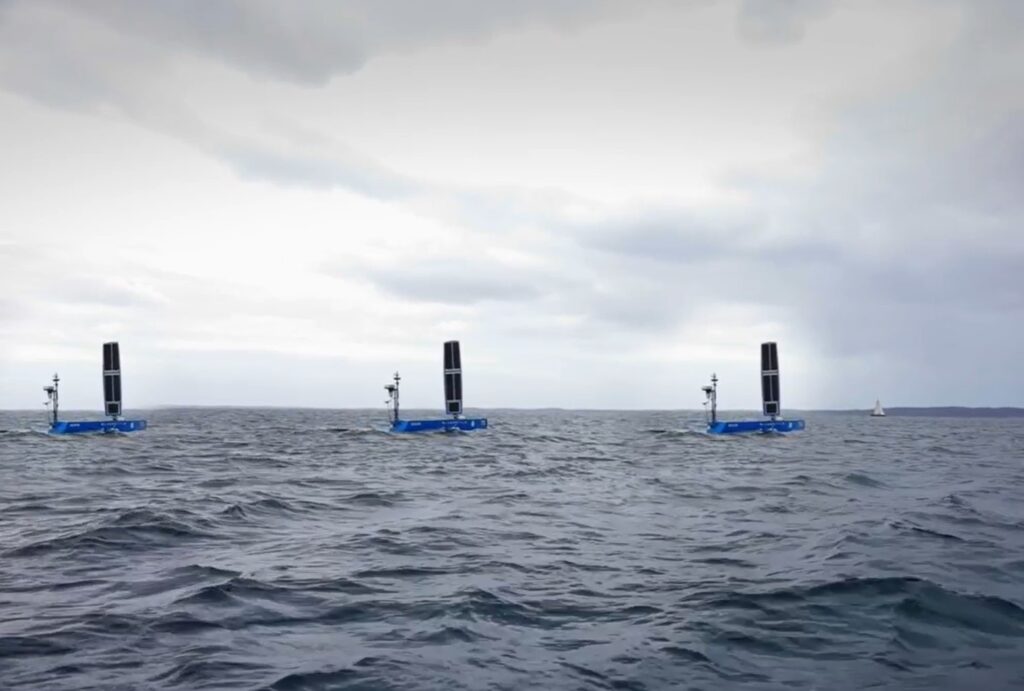
The Ocius Bluebottle featured prominently at AW 2024. Image via Australian Defence.
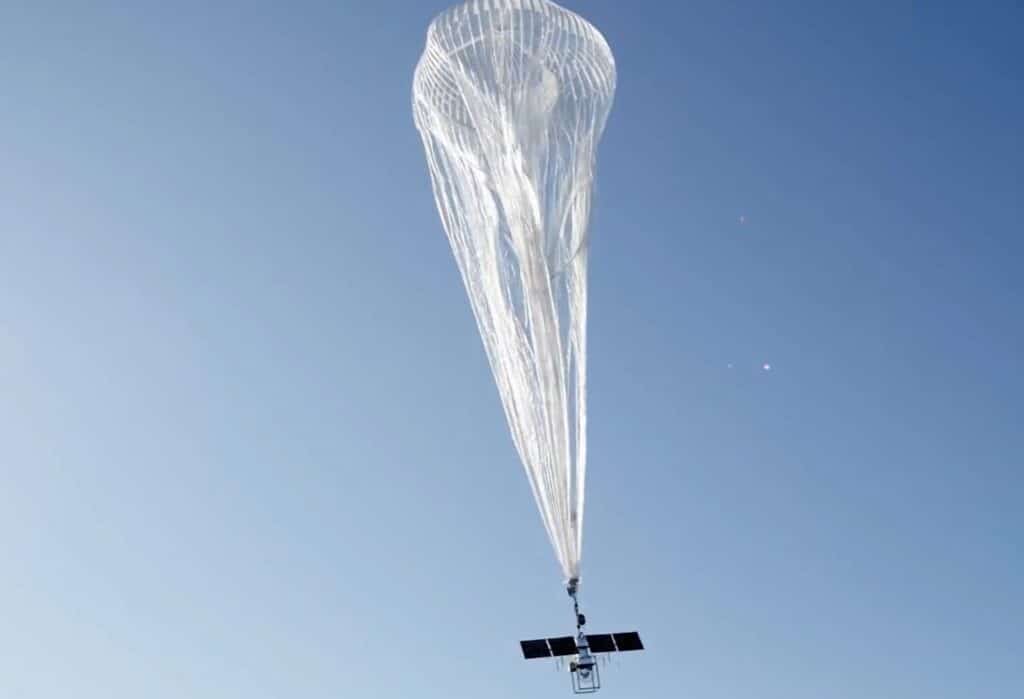
High altitude balloon providing communications relay at AW 2024. Image via Australian Defence.
Notable systems featured in AW 2024 included the Ghost Shark, Remus 600 and Speartooth UUVs. The range of surface drones (USV) featured the Australian Ocius Bluebottle. US contributions included the Saronic Cutlass, the Global Autonomous Reconnaissance Craft, or GARC built by Maritime Applied Physics Corporation. Swift’s Sea Stalker and the Ocean Aero Triton, a combined USV and UUV, were further entries. Airborne systems included what the US DoD in a statement described as “a low-cost gondola, which supports operations in the upper stratosphere with minimum manpower or logistics requirements”. Another US-system were “T-200 high-altitude balloons, which provide resilient communications in denied environments from the stratosphere.”. Australia contributed the OWL-B loitering munition manufactured by Innovaero.
Footage released by Australia also showed a range of unidentified capabilities. These included a delta-winged UAV with pusher prop launched off a moving vehicle. An unknown large UUV resembled Kongsberg’s Hugin-range of underwater drones. Possibly related to the ASW-element of AW 2024 was an unidentified effector discharged from a Collins-class submarine at berth, presumably related to submarine countermeasure capabilities.
First appearance of Ghost Shark In Exercise
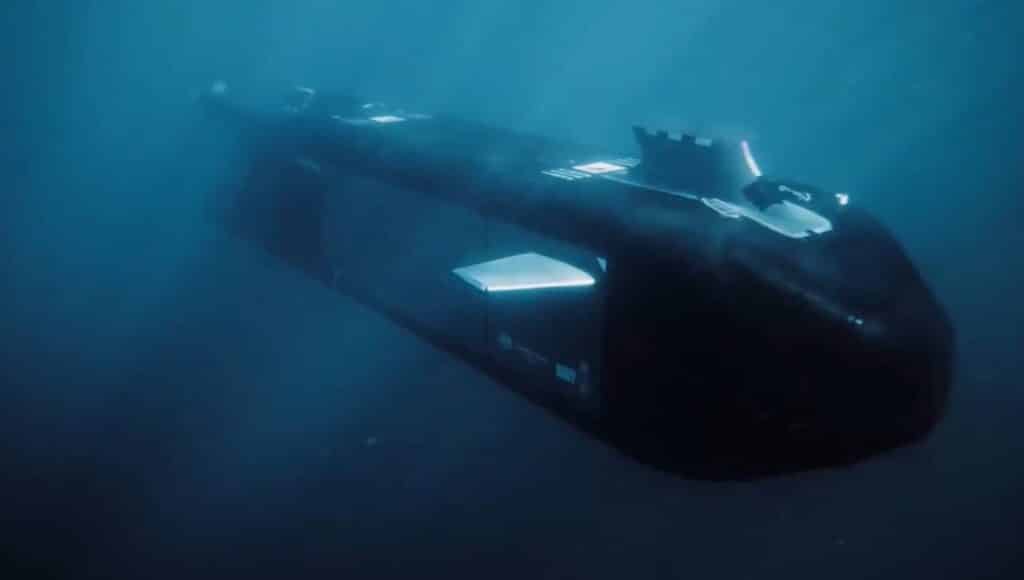
For Anduril’s Ghost Shark this years Autonomous Warrior exercise was the first published appearance in a complex testing environment. Image via Australian Defence.
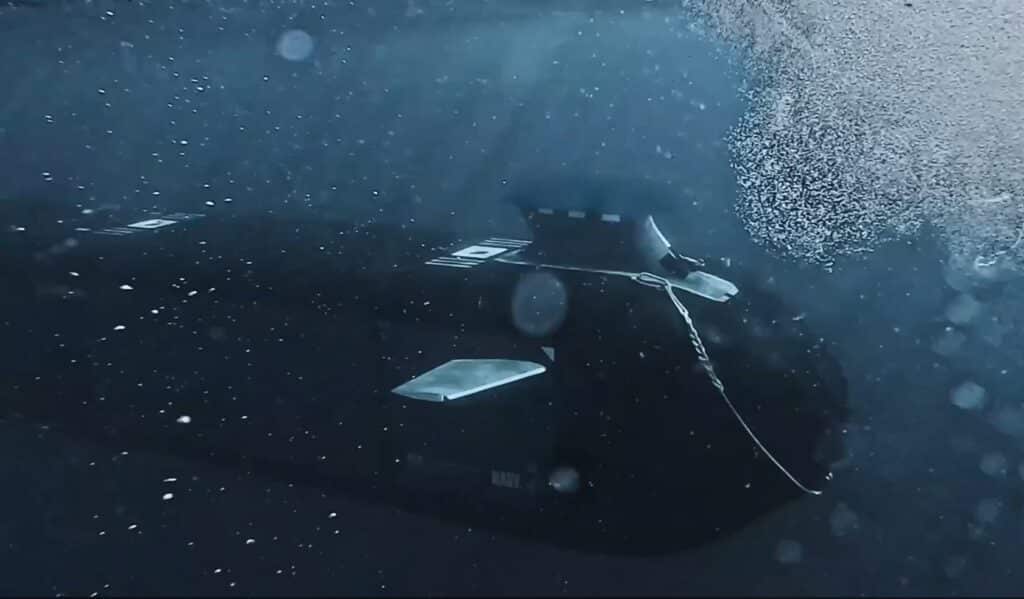
Neither Anduril nor Australian Defence would provide further information on Ghost Shark within the scope of AW 2024. Image via Australian Defence.
For Anduril’s Ghost Shark AW 2024 represented the first publicised exercise in which the large uncrewed underwater vehicle has participated. Anduril earlier this year had also shipped a prototype from Australia to Hawaii, where the company promoted the design at RIMPAC 2024. Nevertheless information on Ghost Shark including basic capabilities and design features such as its propulsion remain unknown. Neither the manufacturer nor Australian officials have released more detailed information on the effort.
Networked Communication As Key Element Of AW 2024
Communications, command and control formed key aspects of AW 2024. Related PR material prominently included soft- and hardware such as an “AUKUS Common Control” workstation. Described as “Common Control System (CCS)” by the US statement the setup is “built on an open architecture to provide uncrewed vehicles hardware and software that works across several different systems. This effort supports future work to create an AUKUS-wide Common Control System, fusing best elements of the three countries’ existing systems.”
In this context the US also emphasized the “Multi-Domain Uncrewed Secure Integrated Communications (MUSIC) tested for its ability to enable seamless communication and coordination across diverse unmanned systems and operational environments.” Meanwhile the UK statement highlighted “Strike Net”, which also serves to integrate partner assets into national command and control-infrastructure. Additionally the Royal Navy contributed “SONIX”, an ASW information sharing-network utilizing sonobuoy-sensor data.
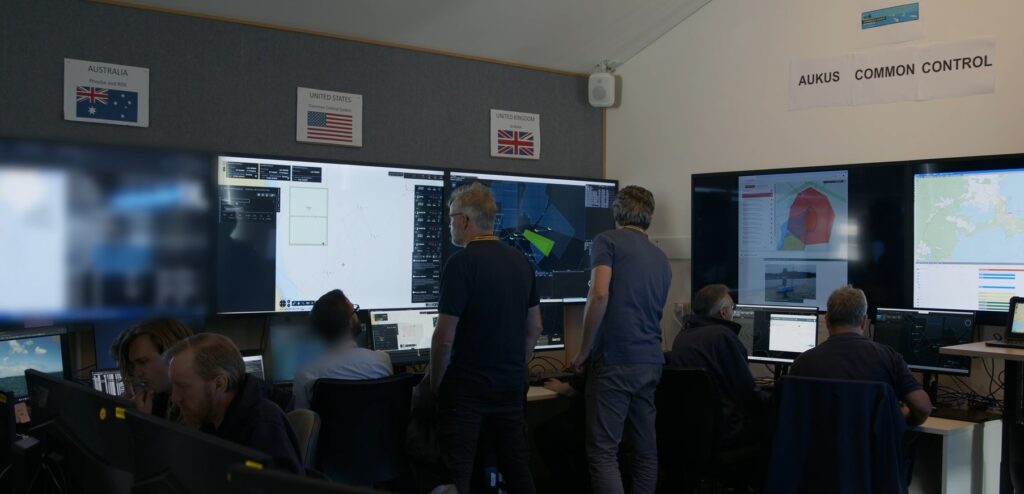
Joint operations centre at Autonomous Warrior 2024, highlighting trilateral efforts in command and control. Image via Australian Defence.
Australia and the United States also highlighted Autonomous Warrior in the overall series of AUKUS trilateral efforts dubbed “Maritime Big Play” (MBP). The US describe MBP as “a series of integrated trilateral experiments and exercises that are enhancing capability development, improving interoperability, and increasing the sophistication and scale of autonomous systems in the maritime domain.”. The three partners have not yet released schedule and planning information on next years Autonomous Warrior-iteration, or how it would evolve from the existing testing environment.
